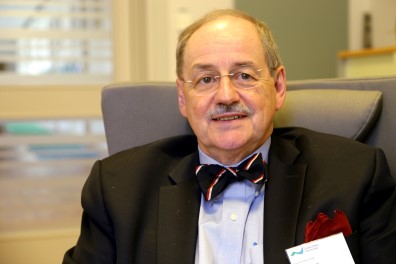Over the years Dr Delli Priscoli has been involved with GWP in a number of assessment roles, and he says it’s fascinating to be back in the network that has grown and developed.
“In 1996 when GWP was founded, I was asked by various governments and the World Bank to design and facilitate a process for about a hundred donors, NGOs, and others. The point was to find a way to negotiate and come up with methods to better coordinate water assistance to help people with water issues all over the world. At the time the resources for water were dwindling,” explains Dr Delli Priscoli.
He still believes in the fundamental idea behind the network, which is about how to make water management work in a complicated world of many stakeholders, lots of technical issues, and political powers in the game.
“How do you bring these things together in ways that produces implementable policies? This is what GWP is about.”
Where to now?
While GWP has a well-documented history in Integrated Water Resources Management (IWRM), Dr Delli Priscoli says it’s important to work on the lessons learned in the past 20 years, and it's time for the network to take this idea further in order to achieve water security worldwide.
“GWP has to put some more substance on what IWRM means. This will be valuable for the new Sustainable Development Goals (SDGs). It’s important for us talk about this process, about what it means. However, the central notion of water management is there, and it’s extremely important to have a world voice on that, and one that is decentralized.”
He says there is also a new dimension of water management that needs to be taken into account: water security, and the risks that are involved. Water management today has become an issue of national security, and GWP needs to assess the risks and the characterization of these.
“Perhaps one of the largest issues is adaptation to climate change. There are many discussions around this. To water people this is important because a lot of events connected to this have to do with water – droughts, floods, tsunamis. The anxiety around these events are being raised, yet very little investment is going into helping the people who we know will be affected. We have the skill and the knowledge to help – GWP can help with this huge ethical public issue, because it involves public policy ethics as well as technical, political, and economic issues.”
GWP’s strength was, and still is, it’s decentralized partnership structure - this is a very good way to send and receive messages from the communities and translate them on the world stage, says Dr Delli Priscoli.
Technical Committee Evolving
As for his own role as Chair of the GWP Technical Committee, Dr Delli Priscoli says their work is also changing. In addition to traditional publications that they have been producing up until now – manuals and documents – new products along with new methods of communicating will also emerge, such as webinars or other mechanisms to disseminate information. The way of communicating has changed over time. There will be much more regional technical involvement, says Dr Delli Priscoli.
“The subjects that the Technical Committee work on need to be relevant. And to be relevant, the Committee has to listen to the decentralized organization, thereby building the connection with the countries and regions and finding out what their needs are. There is new knowledge created in the regions, so it is not only about the Committee responding with new ideas and tools, but listening to their needs and to what is going on. That kind of knowledge spread around the world is of tremendous value to donor agencies and international organisations to tap into. We have many different mechanisms to move that knowledge around.”
Considering where GWP is today though, Dr Delli Priscoli says the people of GWP all have reason to feel proud, because the network has managed to give good visibility to water resources management. This is a journey that now continues.

